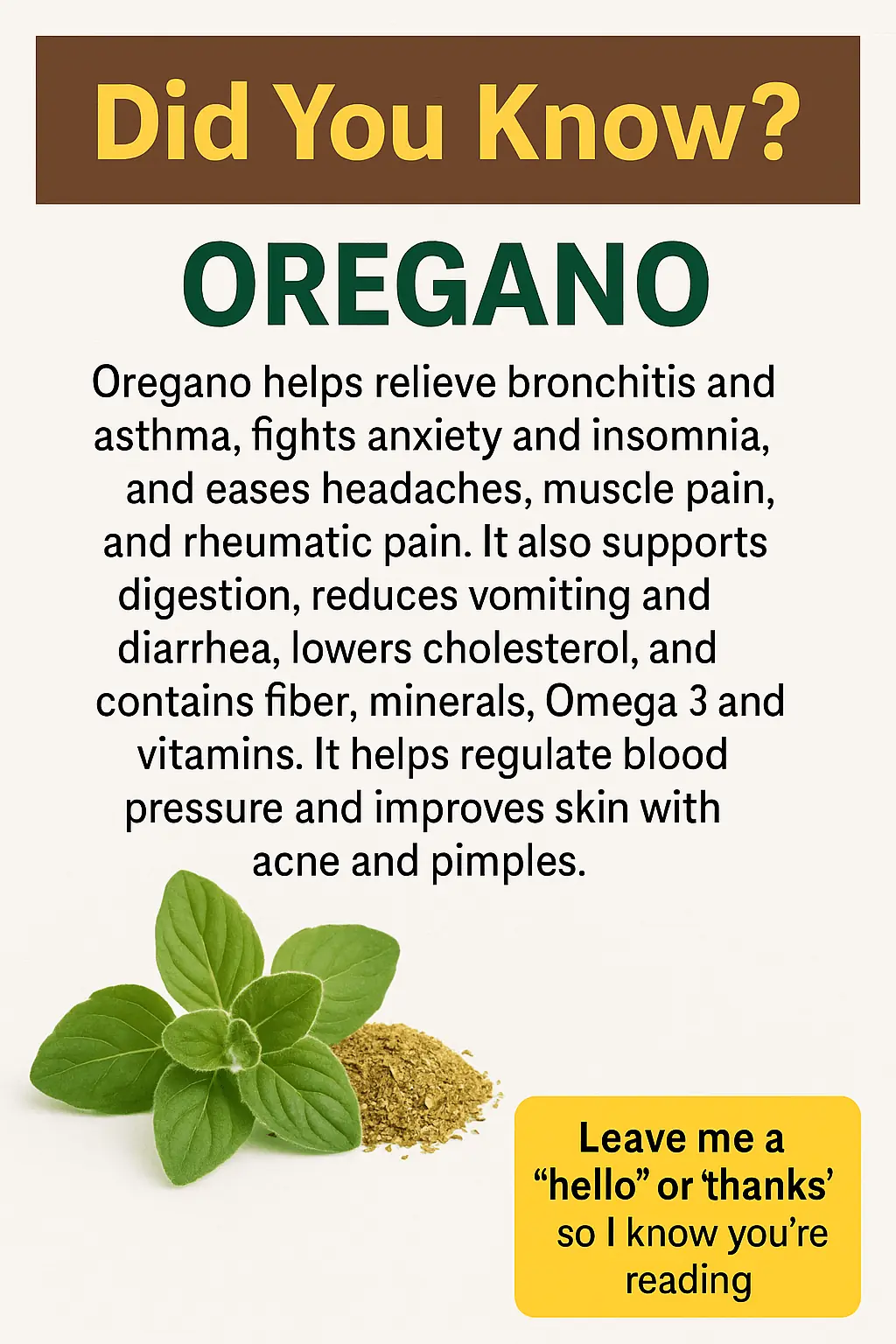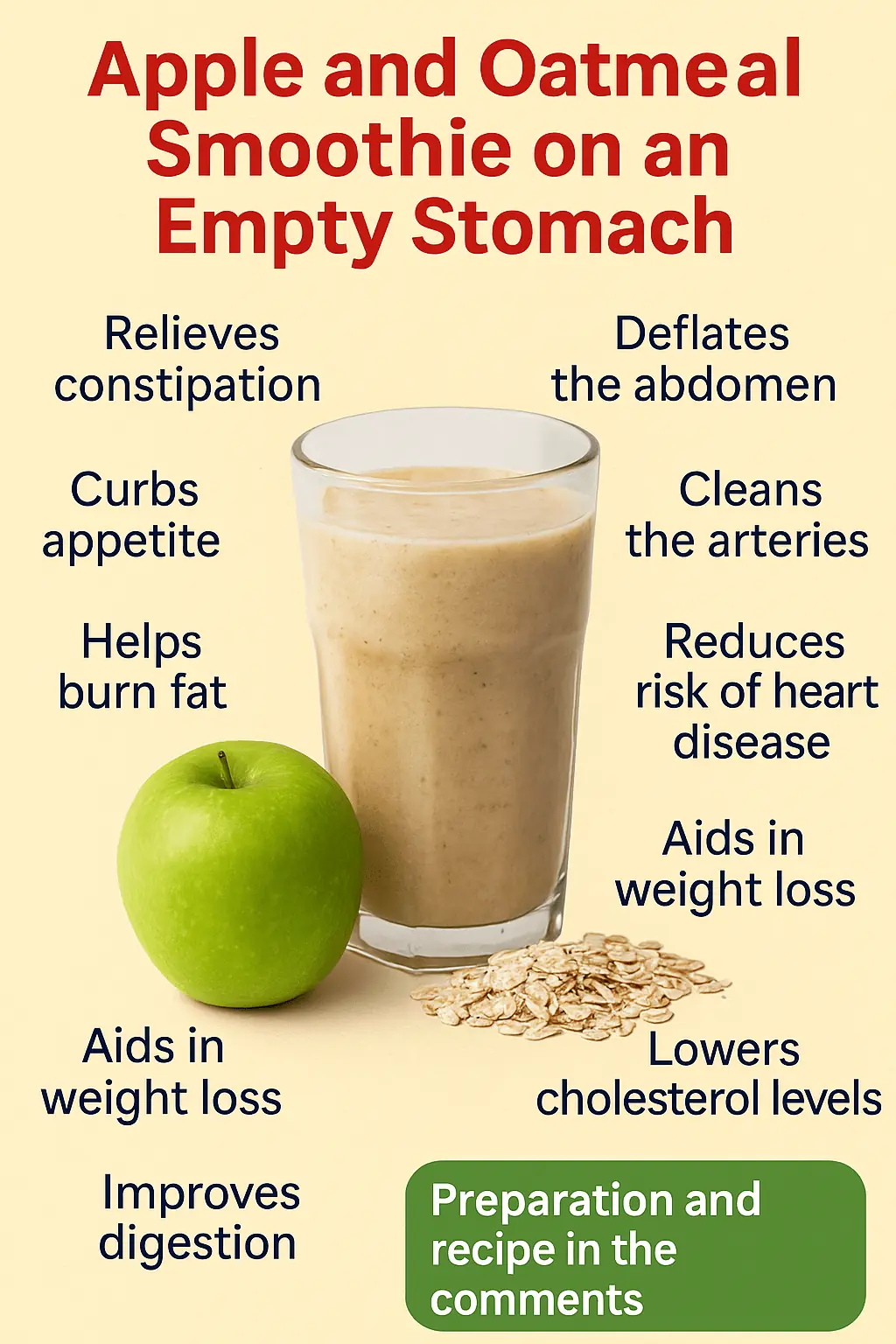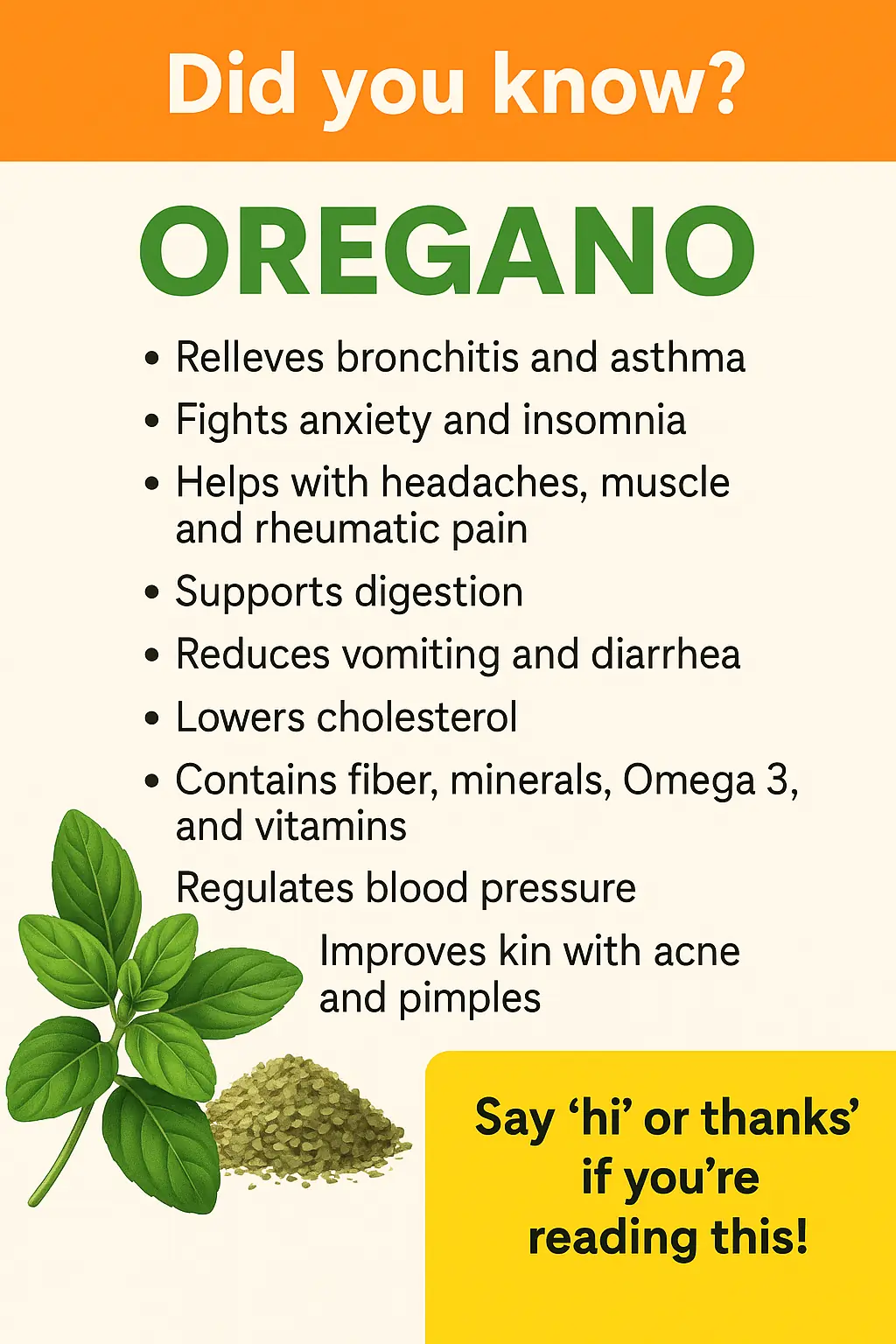
Health Benefits of Oregano and How to Use It
Oregano, a fragrant herb highly valued in Mediterranean cuisine, does more than enhance the flavor of your meals—it also offers remarkable health benefits. Used since ancient times for its medicinal properties, oregano is rich in antioxidants, vitamins, and minerals that can contribute to overall well-being. This article explores its nutritional profile, key health benefits, and practical ways to include it in your daily diet.
Nutritional Properties of Oregano
Oregano is an excellent source of dietary fiber and essential minerals such as calcium, iron, and potassium. It also contains Omega-3 fatty acids, which are beneficial for cardiovascular health, and helps regulate blood pressure. Rich in vitamins C, A, and K, oregano supports a strong immune system and promotes healthy skin.
One of its most notable qualities is its high antioxidant content, which helps fight damage caused by free radicals, reducing the risk of chronic diseases and premature aging. Oregano is also known for its ability to ease various ailments.
Top Health Benefits of Oregano
1. Relief for Respiratory Conditions
Oregano acts as a natural expectorant, helping relieve respiratory issues such as bronchitis and asthma. Its anti-inflammatory properties can open the airways, making breathing easier. You can enjoy oregano as a tea or add it to meals to benefit from these effects.
2. Reduces Anxiety and Improves Sleep
Oregano has mild sedative properties that may help calm anxiety and promote restful sleep. Adding oregano to your evening meal or drinking oregano tea with honey before bed can support relaxation and better sleep quality.
3. Supports Healthy Digestion
Oregano stimulates bile production, aiding in fat digestion. It can also help reduce nausea and combat vomiting or diarrhea. Both oregano oil and herbal infusions can be used to support digestive health.
4. Antibacterial and Anti-Inflammatory Properties
Compounds like carvacrol and thymol give oregano strong antibacterial and anti-inflammatory effects, helping fight infections and reduce inflammation in the body. Oregano can be consumed fresh, dried, or as a supplement.
5. Cholesterol Control
Oregano’s antioxidants may help lower LDL (“bad”) cholesterol while improving HDL (“good”) cholesterol levels, making it a valuable ally for heart health.
6. Improves Skin Health
Due to its anti-inflammatory and antibacterial effects, oregano may help reduce acne. A diluted oregano oil solution applied topically can soothe breakouts—though a patch test is recommended to check for skin sensitivity.
How to Use Oregano Daily
-
Herbal Tea: Steep one teaspoon of dried oregano leaves in hot water for 10 minutes. Strain and sweeten with honey if desired.
-
Salads: Add fresh or dried oregano to salads for extra flavor and health benefits.
-
Sauces: Mix oregano into pasta sauces, pizza toppings, or marinades.
-
Supplements: Oregano is available in capsule form—consult a healthcare provider for proper dosage.
Conclusion
Oregano is a versatile herb offering a wide range of health benefits, from improving digestion and supporting respiratory health to enhancing skin condition. Adding oregano to your daily meals not only boosts flavor but also supports overall wellness. As with any dietary change, consult a healthcare professional—especially if you have existing health conditions—before significantly increasing your intake.
News in the same category


Benefits of Eating a Clove Every Day

How Long Can You Keep Frozen Meat Before Throwing It Away? Here’s the Answer

17 Silent Signals Your Body Is Sending You (And How to Relieve Them Naturally)

The Magic of Cloves and Cinnamon Water: A Daily Health Ritual for the Young at Heart

People at Risk of Cancer Often Show 3 Unusual Signs in the Neck – Even One Is a Health Warning

3 Selfish Habits of Husbands That Increase Their Wives’ Risk of Cervical Cancer – Stop Them Now Before They Harm the Whole Family

🧴 Add Cloves into Baby Oil and See What Happens – 11 Powerful Reasons to Use It Every Day

Oat Water with Lemon: Natural Elixir for Health and Weight Loss

Is Cabbage Harmful to the Thyroid? Discover the Truth

Natural Childbirth: An Experience Without Anesthesia

Natural Antibiotic: Home Remedy to Relieve Sore Throat

5 Health Issues Stress Can Cause (And Many Ignore)

Apple and Oat Smoothie: A Health-Boosting Drink

Health Benefits of Oregano and How to Use It

Benefits of Boiling Banana with Cinnamon: A Natural Remedy to Improve Health

The Pharmacy Tree: Properties and Uses of Neem in Natural Remedies

🌿 The Timeless Wisdom of Dr. Norman Walker: The Philosophy of Health and Longevity

Drink Lemon Water: 13 Problems It Can Solve Without Pills
News Post

The Powerful Watermelon, Carrot, Beet, and Ginger Juice: A Healthy Recipe for Vitality and Wellness

Nature’s Secret Healers: 4 Mighty Leaves That Could Change Your Health Forever

Turn Gray to Black Naturally: Discover the Coffee Secret for Rich, Youthful Hair 🌿

Shocking Truths About Sunflower Seeds You NEED to Know Before Your Next Snack

Benefits of Eating a Clove Every Day

Ready to Feel Amazingly Light? Discover the Green Elixir Your Body Craves This Monday! 🍏✨

12 Reasons to Drink Tomato, Carrot, and Apple Juice Every Morning

Is Your Sleeping Position Secretly Wrecking Your Health? Unlock the Surprising Truth!

Rescued: Lost Dog with Bambi’s Innocence Melts Hearts with His Fragile Demeanor

Disturbing 911 call before police found girl, 10, on highway as dad and girlfriend arrested on murder charges

Reason NY could owe Peanut the Squirrel owners $10,000,000 after pet was seized and euthanized by state

🍰 Classic Mille-Feuille Recipe

🍫 Chocolate & Cream Mille-Feuille Recipe

🎀 Princess Gown Cake Recipe

How Long Can You Keep Frozen Meat Before Throwing It Away? Here’s the Answer

17 Silent Signals Your Body Is Sending You (And How to Relieve Them Naturally)

🍫 Chocolate Ganache Macarons Recipe

🍫☕ Mini Tiramisu Cups Recipe
